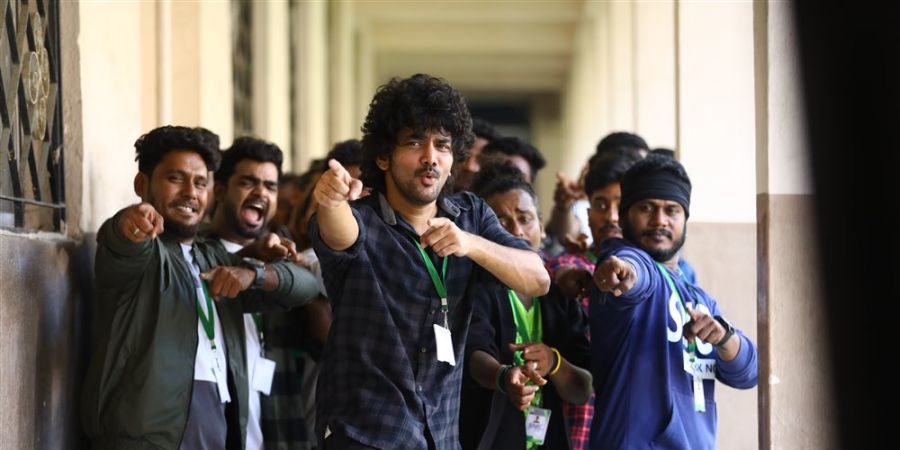

It’s normal for most people, regardless of gender, to wonder at least once how they would be if they were to become a single parent by chance. Think along the lines of a relationship that grows and ruptures, with the man having to raise a child on his own, and it opens door to a wide range of stories for the screen. In DaDa, debutant Ganesh K Babu writes a solid storyline with this and the film is impressive despite the conventional treatment of the screenplay.
We open to a long, lingering shot that closes in on Manikandan (Kavin) waking up to his college sweetheart Sindhu (Aparna Das) resting on his shoulder, shedding tears of happiness. There’s airtight intimacy between them. As he wonders the reason behind those happy tears, we, along with Sindhu, realise that Mani has never cried. “I didn’t cry even when I was an infant and it’s not like I haven’t tried. I am just unable to,” he informs. Sindhu leans forward and kisses him on the cheek. From the camera angle to the kiss and to what we know of these characters here, many details from this simple introduction scene get reflected later on in pivotal moments. One of the many signs of a good screenplay is this — it knows what it sets out to do and it effectively sets out some convincing high points for pay-offs.
And as one realises later, the abovementioned is also the only scene in the film that is meant to establish the relationship between the two because director Ganesh has no interest in telling a conventional ‘boy-meets-girl and they run around trees’ tale. The girl becomes pregnant by accident and decides to not abort the baby. Being unexpectedly forced to bear adulting responsibilities, Mani struggles to find a grip on reality, turns to alcohol, and the relationship with Sindhu begins to fracture. After many unfortunate developments, the baby is born but Sindhu seemingly deserts both her partner and her child. Mani now has to face the harsh realities of being a single father.
The writing, on the other hand, only solidifies. There are some really enjoyable, heart-melting touches in the second act. For instance, in the days after the baby’s birth and Sindhu’s disappearance, the focus is fixed on how Mani is grappling with this sudden turn of events and it is only after a stranger talks to Mani and asks about it do we get the details of the baby’s biological sex and name (they name him Aadhithya, as Sindhu and Mani had earlier agreed). In any usual case, these details would have taken more priority. Here, both the audience and Mani have been following these sudden turbulent events that happen over two days, and it’s as if such details are either passed without notice or are lost in the overwhelming nature of the situation.
Dada comes into its own in this second act, as a feel-good drama about a father and a son with ample doses of comedy (Harish K’s character Amit and VTV Ganesh’s cameo bring in the much-needed levity). However, just as we settle down and begin to expect more from this emotional story about this father and son, the film begins to travel in some tried-and-tested areas. It’s not a surprise to anyone that Sindhu will make a comeback into the film — the very set-up of the character was such that it was obvious. But, unfortunately, Aadhithya is nowhere to be seen for some time and what follows is rather too easy to predict. An important scene featuring K Bhagyaraj and Aishwarya Bhaskaran (who play Mani’s parents) proves to be necessary but it also feels like it has been fit forcefully into proceedings.
